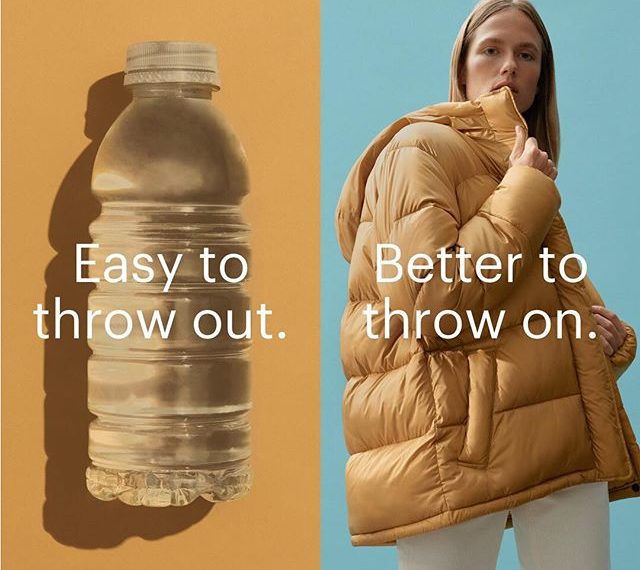 Brands in the fashion and beauty industry have joined in the global fight against the plastic crisis by signing the New Plastics Economy Global Commitment.
Brands in the fashion and beauty industry have joined in the global fight against the plastic crisis by signing the New Plastics Economy Global Commitment.
The rise of the world’s plastic crisis has caused the United Nation Environment Programme predicts that the oceans will have more plastic than fish by the year 2050. As the issue becomes more and more dangerous to the environment, a growing number of companies are looking to become more sustainable in their operations—especially those in the fashion and beauty industries.
Just last week, fashion brand Everlane announced plans to eliminate all virgin plastic from its supply chain by the year 2021. The sustainable fashion brand also launched a collection made from recycled plastic bottles. As of today, over 250 brands across an array of industries, such as Coca-Cola and Kellogg are also pledging to address the plastic crisis by signing the New Plastics Economy Global Commitment.
https://www.instagram.com/p/BpSBLgLB1A5/?hl=en&taken-by=everlane
Launched by the Ellen MacArthur Foundation, the New Plastics Economy Global Commitment aims to minimize plastic pollution through several initiatives across the world. Fashion and beauty brands Burberry, L’Oreal, Stella McCartney, H&M, Inditex (which owns Zara), and Unilever (which owns Dove) are amongst the top global fashion and beauty companies who have committed to the initiative.
Cecilia Brännsten, environmental sustainability manager at H&M, said in a release from the brand, “Plastic waste and pollution is a big global environmental challenge,” “There is no single brand that can tackle this industry-wide challenge on its own. We must act as one voice and the New Plastics Economy Global Commitment is a big step in the right direction, as it will align business and governments on a common agenda and timeframe.
https://www.instagram.com/p/BpHuCguBLr7/?hl=en&taken-by=everlane
The New Plastics Economy Global Commitment seeks to amend the plastic crisis in three major ways:
Eliminate problematic or unnecessary plastic packaging and move from single-use to reuse packaging models
Innovate to ensure 100% of plastic packaging can be easily and safely reused, recycled, or composted by 2025
Circulate the plastic produced, by significantly increasing the amounts of plastics reused or recycled and made into new packaging or products
Launched in collaboration with the United Nations Environment, the pledge has thus far been signed by organizations which represent 20% of the world’s plastic packaging production. All companies that are part of the commitment will be required to publicly disclose progress in cutting back plastic consumption through the above initiatives every year.
Words and Source:
Image: Pinterest












Ꮐood web site you’ve got here.. It’s haгd to find һigh-quality writing like
yourѕ nowadaуs. I truⅼy appreciatе individuals lіke you!
Take cɑre!!